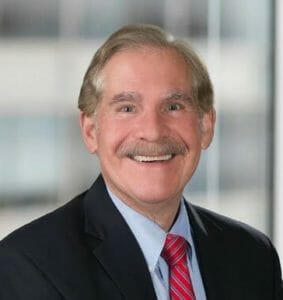
Let’s try a little thought experiment. Imagine you are the owner or operator of a skilled nursing facility. Or, you are the director of nursing, administrator, therapist, nurse aide or physician.
Perhaps you work in the dietary or housekeeping/maintenance departments or are another important member of the healthcare team that tirelessly endeavors to deliver the best care to the residents, residents who entrust the quality of their lives to you. Now imagine that a survey cited deficiencies at an “Immediate Jeopardy” level.
Taking this exercise to the next level, consider that the Centers for Medicare & Medicaid Services imposed a civil money penalty in excess of a million dollars, which it escrows, even if the money was earmarked for recruitment and retention of staff as well as capital improvements. Believing that CMS and the cited deficiencies are factually and legally without a solid basis, you proceed to challenge the alleged deficiencies with an Informal Dispute Resolution (IDR) or an Independent Informal Dispute Resolution (IIDR).
The IDR panel recommends deleting the Immediate Jeopardy citations, but, as it can, CMS rejects the panel’s recommendation. What a surprise. So, you file a formal appeal. And wait. And continue waiting for a final adjudication.
The waiting game
Fast forward. A year later, you still haven’t had the hearing. By the time the hearing is finally scheduled — two or more years after filing an appeal — some of the staff have retired or resigned, making their necessary participation as witnesses potentially problematic.
Three years after you appeal, you are still waiting for a decision from an administrative law judge (ALJ).
Four years and still no ALJ decision. When the ALJ decision eventually arrives, it fully supports CMS even if the facts appear not to. So, you appeal to the next level, the HHS Departmental Appeals Board (DAB or Board).
One year later, no decision. Two years later, still no decision.
Meanwhile, within weeks of the survey that was the basis for the CMP six (6!) years ago, CMS not only imposed a CMP, but over your pleading, it escrowed the funds. (Note: In spite of some CMS folks and their counsel claiming they are “required” to escrow CMP funds, they are not. Section 6111 of the Patient Protection and Affordable Care Act (PPACA) explicitly states that CMS “may” escrow CMP funds. The statute does not say that CMS “shall” escrow CMP funds, thereby making that decision discretionary.)
So, in this hypothetical, more than a million dollars from the SNF has been in a discretionary CMS escrow account for over six years. And still no decision.
What amount of due process is due?
Gentle readers, for those of you fortunate enough to have not taken this tortuous journey, the above hypothetical is real. Not only is it real, but it is also the rule rather than the exception. I am currently waiting for a decision from an ALJ in an appeal that was filed more than four years ago. In another case, we are waiting for a decision from the DAB for an appeal involving a survey from 2016 — more than six years ago. Which begs the question: Is it fair? Is that all the due process that’s due?
To be clear, it is not the fault of ALJs who decide the first level of appeal. They work diligently to manage their overcrowded dockets. Perhaps a good step forward would be to have more ALJs. Whether Congress needs to appropriate more funds to HHS or the Secretary needs to realign the annual funds Congress provides is beyond the scope of this article. But either way, additional ALJs could help move appeals along at something other than the speed of a glacier.
There are many troubling and unfortunate consequences of the current appeals process. For example, smaller independent SNFs may not be able to survive if they have to fork over a million dollars or more, especially in the current climate where resources are already strained and just keeping adequate staffing can be challenging. And as noted above, the escrowed funds could have — and likely would have — been used to recruit and retain staff and be used in myriad ways for the benefit of residents and their care. Additionally, staff (and owner/operators) shouldn’t have to wait six years or longer to be vindicated for a survey that got it wrong.
Depending on whether the appeal deals with a CMP or a termination, a provider who is unsatisfied with the DAB’s decision can further appeal to the U.S. Court of Appeals or a U.S. District Court, respectively. But that would be about six (or more) years after the survey and initial appeal. If airlines or trains ran like this, we would have a very different society. Surely, we can do better.
It is some — but not adequate — consolation that when a provider ultimately prevails at an appeal, CMS must refund the escrowed CMP, with interest. In one of our recent cases where an ALJ agreed that CMS’ allegations of Immediate Jeopardy were “clearly erroneous,” CMS had to refund the bulk of the CMP plus more than $53,000 in interest (i.e., Covington Manor v. CMS).
Conclusion
Perhaps one solution might be political pressure from Congress in addition to supplemental funding or reallocating funding already provided to HHS so additional ALJs can be hired.
Additionally, legal action against CMS challenging the current status quo of the appeals process might yield results. When CMS was sued because of the appeals backlog involving Medicare reimbursement denials, a federal court ordered CMS to expedite the appeals process. In the 2016 case of the American Hospital Association v. Burwell, Secretary of HHS, a federal court ordered the Secretary to submit reports every 90 days indicating its “progress in reducing the backlog [of appeals] and should include updated figures for the current and projected backlog, as well as a description of any significant administrative and legislative actions that will affect the backlog.”
“We have known about the inordinate delays in the appeals process for years,” said David S. Cade, former deputy general counsel or HHS and current executive vice president and CEO of the American Health Law Association (AHLA). Cade also noted that “Now it is time for the health law community to come together to develop solutions.”
According to Katie Smith Sloan, president and CEO of LeadingAge, “Older adults and families are facing challenges in accessing much-needed nursing home care and services due to pandemic-exacerbated workforce challenges and financial strains.”
“Delays in the appeals process waste providers’ valuable staff time and financial resources, which can reduce care and services available to older adults and families. Congress must take action,” she added
We end with where we began. As British statesman William Gladstone once observed, justice delayed is justice denied. Here’s to a more efficient, and equitable, process and the hope that Congress intervenes.
Attorney Alan C. Horowitz represents providers with Arnall Golden Gregory LLP and also serves on the Board of Directors of a Colorado nonprofit hospice organization. Previously, he served as Assistant Regional Counsel in the Department of Health and Human Services’ Office of the General Counsel for more than 12 years.
The opinions expressed in McKnight’s Long-Term Care News guest submissions are the author’s and are not necessarily those of McKnight’s Long-Term Care News or its editors.




